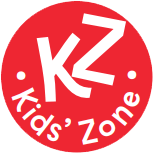SPELLING
"Spelling is improved when reading is done." - Stephen D Krashen
"Spelling is one of those challenging subjects to teach but we do it regularly in my class to try and make a difference." - MV Staff
"We are delighted that leaders have written a bespoke spelling curriculum just for our children - that's what makes Morley Victoria special." - MV Governor
"I don't find spelling very easy so I write them out in lots of different ways and colours to help me." - MV Pupil
"I try to use my phonics to help me with my spelling." - MV Pupil
"I spend a lot of time at home learning my spellings - some of them are really hard by the time you get to Year 6 but I want to get them all right!" - MV Pupil
At Morley Victoria, we believe that being able to spell accurately is important and in the National Curriculum, which we are following, correct spelling is stated as a key objective in all subjects.
As an inclusive school, we are committed to dyslexia-friendly approaches to spelling and advocate multi-sensory learning strategies. Every child is different and will learn in his/her own unique way. It is important that every individual learns to use a range of strategies and identify those that work for them, personally.
In Key Stage One, the emphasis is on learning to read, and therefore record sounds. By segmenting a word into the sounds it is made up of, children can then spell phonetically. Children are encouraged to have a go, sounding out words as they write and at other times making use of their sight words. This then leads to learning spelling rules and their exceptions.
In Key Stage Two, we continue to encourage children to have a go and use their phonic strategies to spell as well as learning a bank of more irregular words individually. In addition, we teach spelling rules and patterns. Pupils are encouraged to use a wider range of strategies to spell words including:
- Breaking words down into syllabic chunks
- Using a dictionary or spellchecker
- Independently discovering, learning and recalling rules
- Using mnemonics such as ‘Big Elephants Can Always Understand Small Elephants’ to learn the word ‘because’
We have written a bespoke spelling curriculum for Morley Victoria that has taken ideas and the order of spellings from a variety of resources. We have simply written our own document with our children in mind. We must also ensure that the National Curriculum spelling lists are covered as a statutory requirement within our own bespoke curriculum. You will find these spellings in the blue boxes on the left - many of the spelling rules within these lists will be tested at the end of Year 6 in their SATs.
We take a very active approach to the learning of spellings at Morley Victoria and encourage pupils to improve through a variety of games and activities which may be kinaesthetic and ‘get up and go’, or through the identification of rules and patterns that can be applied. The emphasis is always on ‘having a go’ and celebrating what is, rather than what is not, correct in the word. We believe that making the meanings of words integral to their acquisition, alongside the practice of spelling words in context, is fundamental to success.
Many parents / carers have asked how they can support their children with spelling at home. These ideas have been designed to help:
- Using mnemonics as an aid to memorising an irregular word (e.g. people: people eat orange peel like elephants; enough: even naughty octopi usually get haribo.
- Dividing the word into syllables, say each syllable as they write the word (e.g. re-mem-ber).
- Finding words within words (e.g. a rat in separate); highlight these with a highlighter pen and even make up a short story linking the embedded word to the whole word meaning.
- Making links between the meaning of words and their spelling (e.g. sign, signal, signature).
With spelling flashcards:
- Pairs: Create a double set of the words your child is finding tricky. Pick up two cards at a time until they find a pair. Can they verbally spell it out to you?
- Multi-media: Copy/trace words from flashcards using dough, pasta shapes. Magnetic letters on your fridge with which to make words can also add variety.
- Finger-writing: Spell out words in sand, salt or flour using your finger.
With pen, pencil, marker and paper:
- Spelling Word Race: Create two teams with one player from each team taking the pen at a time. Someone calls out the word and the two players race to write this word first.
- Spelling Puzzle: Make a home-made puzzle by writing the words in large on a piece of card. Get your child to cut it up and then see if they can piece it back together again?
- Stairs: Write the words as if they are stairs, adding one letter each time: S, Sp, Spe, Spel, Spell
- Rainbow write: Build each word up with a different-coloured letter at a time.
- Tic-Tac-Toe: This game is a favourite of the children’s and is often best known as Os and Xs. Using the spelling words in place of an O or an X, the players must get three in a row, with the chosen word spelt correctly each time.
- Chalk: If you have any chalk (and don’t mind getting your paving a bit messy) get your child to write the words on the ground and then the rain will wash it away.
- Glass pens: Write spellings on the windows with wipe-clean glass pens.
- Water Paint: Use water and a paintbrush to water paint the spelling words. On a hot sunny day, the words disappear quickly so they need to paint fast!
- Catch/Kick: Kick or throw a ball, or pass an object between you, taking it in turns to say the next letter.
- Newspaper: Cut out letters from a newspaper to make words.
- Games: Scrabble, Boggle, hangman.
- Look, Cover, Write, Check: Look at a word and say it out aloud then cover it, write it and check to see if it is correct. If not, highlight or underline the incorrect part and repeat the process.
With a computer or tablet:
- Type it out: Open up a document to type on. Call out the word for the child to spell. They can then play around with the word; increase the font size, change the colour etc.
- Voice record: Using a recording device have your child spell out the word and get them to listen back and check.
Some children, and particularly those with dyslexia, benefit from cream paper and different-coloured ink. Try using different backgrounds when word-processing and encourage your child to consider which colours, backgrounds and fonts are best for them.
Remember, just sitting and learning meaningless words by rote is not fun and encourages neither a love of writing nor an interest in the rich vocabulary of our language. Acquiring more words must be fun and motivating. One of the very best ways is just to encourage your child to read, read and read some more so that they absorb language and spelling in context. Don’t forget that ‘reading’ also can include listening to audio books, hearing stories read aloud by family members, encouraging children to read to their younger siblings and even their pets!
Every week your child will be bringing home a list of spellings which are the class focus for that week. Please help support spelling at school by taking some time to try a few of the above activities at home with your child. Little and often is far better than all at once; concentrating on a few words each day is best and will really go a long way in helping your child to meet national standards.
If you come up with any other enjoyable, successful and motivating ideas to get those spellings learnt, please let us know and we can add them to the list.
Happy spelling!


























